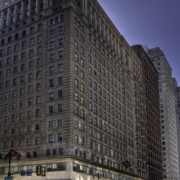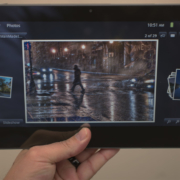Hiring Well
 I don’t know a single business person that hires the cheapest candidate available. Each candidate is hired based on their qualifications, knowledge and (perceived) abilities. You review resumes and references and then you start the interview process. If the best fit is close to the salary range you have reserved for the position, you hire them; if not you negotiate to see if a compromise is possible. After all, you are going to be working with this person for a long time and you want them to fit into your business culture and atmosphere. It is the smart thing to do.
I don’t know a single business person that hires the cheapest candidate available. Each candidate is hired based on their qualifications, knowledge and (perceived) abilities. You review resumes and references and then you start the interview process. If the best fit is close to the salary range you have reserved for the position, you hire them; if not you negotiate to see if a compromise is possible. After all, you are going to be working with this person for a long time and you want them to fit into your business culture and atmosphere. It is the smart thing to do.
So why not use that same business sense to hire a vendor? In many cases vendors are chosen strictly by the price of their bid. In many cases business owners/managers are so concerned about the immediate spend that they miss the value of the proposal and product offered. Does this mean that the cheapest is always the best deal? In fact most of the time the “best deal” is not a good value at all.
In my last post, ‘The Value of Quality,’ I used the automobile business as a scenario to make my point. To carry that forward let’s look at another vehicle, the Yugo. Yeah I hear all of you groaning. The fact of the matter is that towards the end of the Yugo’s life in the US there was a deal where you buy one and get one free (BOGO). It was a hell of a deal but was it of any value? Not really. Parts were almost impossible to find, the company was obviously not going to be around long and the cars didn’t have a good reputation at all. If you went for the BOGO your only hope was to use the second one to keep the first one running.
So why is it that many still go for the lowest price? If I am going to fly to the moon I don’t want the cheapest rocket, I want the safest and most reliable. I want to come back too! There may be water on the moon but there isn’t much to eat. Now if that rocket also is the least expensive, bully for me! But cost is not the major factor; quality of service and quality of product are.
When thinking about your photography needs, or any service for that matter, you need to consider the ROI and what is going to give you the best return on your investment. That is not calculated by just price either. Just a few of the contributing components are: lifespan of the resulting products, customer service, delivery schedule, quality of the service and product, etc. Let’s face it: if you don’t get your images on time and you miss a deadline what is the resulting cost of that mistake? If you are using the resulting images for advertising and they don’t convey your message properly what good are they? If your competitors have a similar product or service and their images shine a more professional light on them who is going to win the majority of clients?
Now if your images are more professional, better looking, of higher quality and have a longer usage period then you are getting a great deal! You spread the cost out over a longer period, you gain more business during that period, you give your company a better presence in the market and you will probably get more clients.
Overall you have to decide what the best value is and you have to make compromises. When hiring that candidate you probably won’t negotiate a salary that is out of your total budget. However, if the candidate is going to increase cash flow, chances are they are worth a little more than you plan especially if you can more than recoup that investment in the long term.
So the next time you are going out to bid a vendor, especially a photographer, give them a call, interview them, check their references and see what the real value is and I will bet that you will work with the one that gives you the best return on your investment even if they aren’t the cheapest.












I would love to hire you to write for my blog, because you convey my thoughts to a T! LOL
Deidre, we can talk… 😉
Here are my thoughts on this, and I’ve given this a lot of thought over the years.
You have A,B,C photographers; how do you distinguish between hiring one of them for your project?
A, Photographer is geographically closest to your project, but is hirer priced than B or C by 40%.
B & C are not close, but are cheaper than A or B.
So you have travel considerations/cost.
All three have great portfolios, you’ve never worked with them so you don’t have first hand knowledge of how they would “fit” into the project, reliability, or the way they work.
All three are available at the dates you need.
All things being equal under this example except distance and price.
You now turn to individual style so you look closely at their portfolios. All three have very different styles or projects they’ve worked on.
Which do you chose?
Do you talk over the phone, how well do you gauge over the phone? So you, fly them in to meet with you (budget allows)
Like sampling paint. Spend extra on samples before you buy one color that you paint the whole house with and then realize, ooops not the right color.
All three candidates have strong suits, still stuck with a choice… who do you chose?
My guess is,…the one that’s closer?
Tim,
First thing is that if all things are equal and assuming that even with travel expenses the cost is the same you have to ask which style suits your project? If you are still in a quandary, ask for references.
If they are still equal at this point (which I highly doubt will happen) don’t fly them in, video conference. Technology is there to reduce costs, use it.
Still equal? Go with your gut feeling. If your gut is still equal on each, try Rock/Paper/Scissors and see which one wins.
If you go through all those steps the advantage of local photographer is that they are easier to go see if there is a problem and he will have that one his/her side.
I honestly think though that through all that you are going to find differences that lead you to one over the other. You mention different styles, which one do you like better? Go with that photographer.